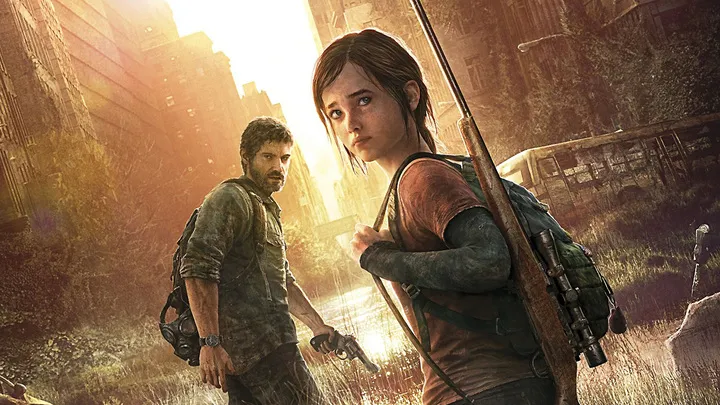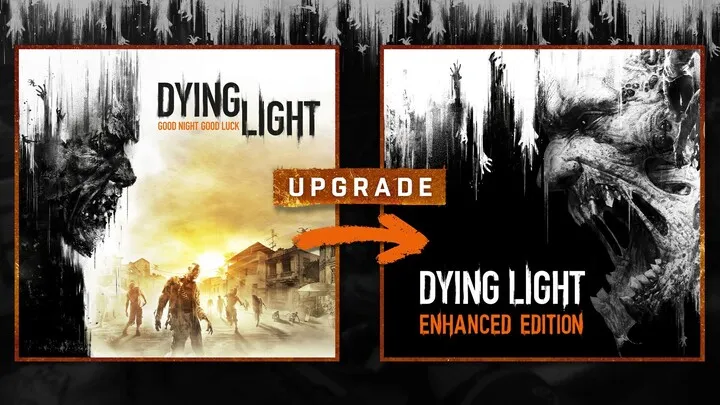Introduction
Zombie survival games have captivated gamers for decades, combining the fear of relentless undead hordes with the thrill of resource management, exploration, and combat. Unlike traditional shooters or horror adventures, zombie survival games force players to test their limits—not only against enemies but also against hunger, fatigue, dwindling supplies, and the constant dread of isolation. These games mirror some of our deepest fears: being overwhelmed, running out of resources, or being left alone in a collapsing world.
What makes this genre so enduring is its ability to create tension through scarcity and unpredictability. In zombie games, enemies may not be the most intelligent AI, but their overwhelming numbers, persistence, and the environments they inhabit often push players into desperate, last-ditch strategies. The thrill comes from adapting, surviving, and—sometimes—thriving in the face of endless adversity.
In this article, we’ll dive deep into 10 of the best zombie survival games that challenge players in unique and demanding ways. These titles span from cinematic single-player experiences to unforgiving multiplayer sandboxes, ensuring there’s something here for every type of survivor.
1. Resident Evil Series – The Survival Horror Pioneer
Few franchises have shaped the zombie survival genre as much as Resident Evil. Since its debut in 1996, this Capcom classic has continually evolved, blending survival horror, action, and puzzle-solving.
Gameplay and Survival Mechanics
The original Resident Evil set the stage with its iconic "tank controls," limited inventory space, and scarce ammunition. Players had to think twice before firing a bullet or using a healing herb. Unlike fast-paced shooters, this game forced you to conserve resources and plan every step carefully. The fear wasn’t only the zombies—it was the possibility of running out of supplies at the wrong moment.
Later entries like Resident Evil 4 and Resident Evil 7 introduced new layers: more action-oriented combat, immersive first-person horror, and refined crafting systems. These games adapted to modern audiences without abandoning the core survival experience.
Why It Tests Your Limits
Resident Evil pushes players to manage stress under pressure. The claustrophobic environments, tricky puzzles, and iconic bosses like Nemesis and Mr. X create a constant feeling of dread. Even veterans of the series admit that every encounter demands strategic thinking, making the series a cornerstone in zombie survival gaming.
2. The Last of Us – Survival Through Storytelling
Naughty Dog’s The Last of Us is more than just a zombie game—it’s a masterclass in narrative-driven survival. Released in 2013, the game introduced the world to Joel and Ellie, two characters whose journey through a post-apocalyptic America resonated deeply with players.
Gameplay and Emotional Weight
The enemies aren’t your typical zombies but the terrifying “Infected,” driven mad by the Cordyceps fungus. Players must scavenge for supplies, craft weapons, and make difficult choices about when to fight and when to flee. The game emphasizes stealth over brute force, with encounters that punish reckless players.
Why It Tests Your Limits
Unlike other zombie games, The Last of Us forces you to confront not just survival mechanics but also emotional limits. Every bullet fired feels costly, every resource matters, and the story often forces players into morally gray decisions. The emotional stakes, combined with the harsh environment, make it one of the most demanding and rewarding survival experiences.
3. Left 4 Dead 2 – Cooperative Chaos
Valve’s Left 4 Dead 2 redefined multiplayer zombie survival with its emphasis on cooperation, speed, and replayability. Released in 2009, it remains one of the most beloved co-op shooters ever created.
Gameplay and Teamwork
The game is all about moving from safehouse to safehouse while battling waves of zombies and special infected like Hunters, Boomers, and Tanks. Unlike single-player survival games, Left 4 Dead 2 tests your ability to work as a team under relentless pressure.
The AI “Director” ensures that no two playthroughs are the same, adjusting the difficulty and spawning based on player performance.
Why It Tests Your Limits
The challenge lies in balancing individual survival with team dynamics. Stray too far from your group, and you’ll be overwhelmed. Ignore resource sharing, and the entire team may collapse. It’s a true test of communication, trust, and quick reflexes—skills essential for surviving the undead apocalypse.
4. Dying Light – Parkour in a Zombie Apocalypse
Techland’s Dying Light blended fast-paced parkour with brutal zombie combat when it released in 2015. Set in a quarantined city overrun by the undead, the game offered unprecedented freedom of movement.
Gameplay and Day/Night Tension
By day, players scavenge, craft, and parkour across rooftops to avoid the zombie hordes. By night, however, the terrifying Volatiles emerge—powerful monsters that can outrun and overpower players with ease. This day-night cycle creates a constant push-pull between risk and reward.
Combat is visceral, with melee weapons being the core focus. Players can craft customized weapons, but durability and stamina limitations ensure you can’t fight endlessly.
Why It Tests Your Limits
Dying Light challenges players not only with its combat but also with navigation. Escaping hordes by leaping across buildings or zip-lining away from danger demands both precision and nerve. The nighttime sequences, where even the bravest players feel vulnerable, elevate the tension to new heights.
5. Project Zomboid – The Ultimate Survival Sandbox
If you’re looking for realism in zombie survival, Project Zomboid is unmatched. This indie title may not have flashy graphics, but its deep mechanics and permadeath system make it one of the most hardcore survival games available.
Gameplay and Mechanics
Players must manage hunger, thirst, fatigue, and even mental health while scavenging for supplies in a vast open world. Every action carries consequences: forgetting to turn off a light could attract zombies, while eating spoiled food could leave you sick and vulnerable.
The game also includes base-building, farming, and cooperative multiplayer. The lack of a scripted story means every playthrough is unique, ending only when you inevitably die.
Why It Tests Your Limits
Unlike scripted games, Project Zomboid offers no safety net. The realism forces players to think like true survivors, and one mistake can end dozens of hours of progress. It’s not a question of if you’ll die, but when.
6. DayZ – The Harsh Multiplayer Apocalypse
Originally a mod for ARMA 2, DayZ became a standalone phenomenon in 2013. It introduced players to an unforgiving multiplayer world where zombies were just as dangerous as other survivors.
Gameplay and Player Interaction
The game emphasizes scavenging, survival, and player choice. Do you cooperate with strangers or betray them for supplies? With minimal UI and no guidance, the game forces players to rely on instinct and trust—or suspicion.
Why It Tests Your Limits
The real challenge in DayZ comes not from zombies but from other players. Human unpredictability, combined with limited resources, creates tension that no AI can replicate. Every encounter is a gamble, making survival a psychological as well as physical battle.
7. State of Decay 2 – Community Management Survival
Undead Labs’ State of Decay 2 blends base-building, community management, and third-person action into one cohesive survival package.
Gameplay and Base-Building
Instead of focusing on a single protagonist, players manage an entire community of survivors. Each character has unique skills, personalities, and weaknesses. Building a strong base requires balancing food, medicine, and morale while venturing out for supplies.
Why It Tests Your Limits
Unlike games that test individual skill, State of Decay 2 forces you to think as a leader. The survival of your community depends on tough decisions: who to save, who to sacrifice, and how to distribute resources. It’s a test of both strategy and empathy.
8. 7 Days to Die – Crafting Meets Survival Horror
Blending first-person shooting, crafting, and tower defense, 7 Days to Die has been described as “Minecraft meets Left 4 Dead.”
Gameplay and Crafting Depth
Players scavenge resources to build fortresses, craft weapons, and prepare for the deadly “Blood Moon” event every seven days, when hordes of zombies attack in massive waves.
Why It Tests Your Limits
The game pushes players to constantly prepare for the inevitable. Balancing daily survival needs with long-term base-building creates a constant cycle of tension. Every seven days becomes a brutal exam of your preparation and creativity.
9. Dead Rising Series – Creative Mayhem
Capcom’s Dead Rising franchise stands out for its over-the-top gameplay and creative combat. With malls, casinos, and cities as playgrounds, players use everything from chainsaws to shopping carts as weapons.
Gameplay and Time Pressure
The series is famous for its real-time clock system, where players must complete missions within strict time limits while also rescuing survivors. The pressure adds intensity, ensuring players can’t just leisurely explore.
Why It Tests Your Limits
While more comedic than others, Dead Rising challenges players to think outside the box. The time constraints, massive hordes, and boss fights with deranged humans combine to create a uniquely stressful survival experience.
10. World War Z – Swarm Survival
Inspired by the film, World War Z delivers massive scale zombie action. Released in 2019, it’s a cooperative shooter that puts players against overwhelming zombie swarms.
Gameplay and Swarm Mechanics
Unlike traditional games, World War Z features thousands of zombies on-screen simultaneously, creating a sense of unstoppable chaos. The cooperative gameplay rewards team coordination and tactical use of weapons.
Why It Tests Your Limits
The sheer volume of enemies forces players to remain calm under impossible odds. Unlike one-on-one encounters, here you’re facing literal walls of undead, testing your reflexes, teamwork, and nerves.
Conclusion
Zombie survival games remain one of the most intense and enduring genres in gaming. From the calculated resource management of Resident Evil to the player-driven chaos of DayZ and the emotional storytelling of The Last of Us, each game offers a unique way to test your limits.
What unites them all is the challenge of enduring the impossible—whether it’s scarcity of supplies, overwhelming hordes, or the unpredictability of human behavior. They push players to adapt, improvise, and survive, reminding us that in a world overrun by the undead, only the most resourceful can endure.

















